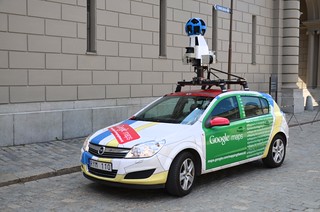
Google cars can be seen almost anywhere, recording data for their map system. But, those cars are doing much more than just taking pictures. They are measuring methane gas levels from piping miles underneath them.
Led by Professor Joe von Fischer, a team at Colorado State University helped to develop the routes that the Google cars drive and the sophisticated data analysis tools to interpret those methane measures for the project. The project is led by the Environmental Defense Fund.
Specifically, the developed cars gather data from Indianapolis, Boston and New York. EDF used the data collected from more than 15 million data points to create interactive maps that depict the thousands of leaks beneath the streets of the three cities.
“Researchers, including me, have measured methane concentrations in cities before,” stated von Fischer, an associate professor of biology at CSU, in a press release. “The challenge has been the ability to translate methane concentration into understandable leak rate estimates. This effort not only makes a significant scientific advancement, it helps raise awareness of how much methane is escaping from pipelines in our cities.”
The data collected already shows a wide disparity in the amount of methane leaking in Indianapolis, Boston and Staten Island. Their results show very few leaks in Indianapolis, one every 150 miles, versus about one every mile in Boston.
“It is clear that the aggressive pipeline replacement program in Indianapolis has made a big difference in the leak frequency,” von Fischer stated.
Since 2012, the EDF has launched many studies to see the effects of methane leaks across cities. This is just one.
CSU team members included Jay Ham, a professor in the Department of Soil and Crop Sciences; David Theobald, an adjunct professor and consultant with Conservation Science Partners; Dan Cooley, a professor in the Department of Statistics; and Russ Schumacher, a professor in the Department of Atmospheric Sciences.
Collegian Managing Editor Lawrence Lam can be reached at news@collegian.com.




